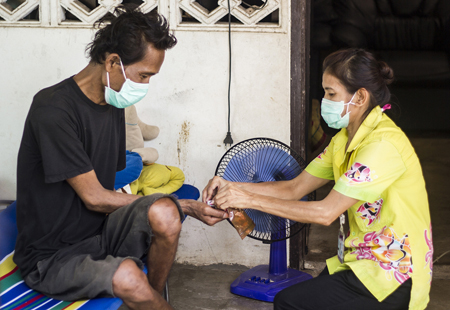Researchers from the UBC Faculty of Medicine and Imperial College in London have used genome sequencing to determine when a tuberculosis (TB) outbreak is over, which will help public health investigators understand an outbreak’s dynamics and guide a real-time response.
Genomic analysis involves reading the complete genetic instructions of the pathogens causing a disease, and using that data to infer who might have infected whom. By looking for mutations that are shared between the pathogens taken from different people, the researchers were able to whose pathogens are most closely related to each other, suggesting potential transmission.
“Declaring the end of a TB outbreak is a difficult thing to do,” said Jennifer Gardy, an Assistant Professor in the School of Population and Public Health and a Senior Scientist at the British Columbia Centre for Disease Control. “Because the bacterium that causes TB can lie dormant in someone’s lung for months or even years before it causes disease, we had no way of knowing whether a TB case we have just diagnosed was a recent infection – suggesting the outbreak is still going on – or whether the person was infected years ago.”
As described in their study, published in Microbial Genomics, the researchers used mathematical and statistical techniques to evaluate a TB outbreak that began in May 2008 and were able to determine when each outbreak case was infected. This provided public health officials with a way to determine when disease transmission had stopped and the outbreak had ended. Dr. Gardy and Caroline Colijn, a biomathematician at Imperial College London, were able to declare the outbreak over in January 2015, after the data indicated no disease transmission had occurred since mid-2012.
“By using a series of techniques from the world of mathematics and statistics, we can come up with an estimated time at which each infection occurred,” Dr. Gardy said. “This information is incredibly useful to the public health officials managing an outbreak. Responding to an outbreak requires a lot of effort and resources, and we need to know when we can step down our response.”
“Genomics has been used to monitor infectious disease outbreaks before, but this is the first time it’s ever been possible to declare a complicated outbreak of TB over,” she said. “It really opens up new doors in the world of TB control.”

